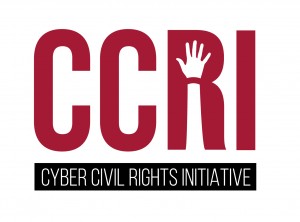 Back to Case Studies
Back to Case Studies
Location
Coral Gables, FL
Nonconsensual pornography (NCP), also commonly known as “revenge porn,” is the distribuion of private, sexually graphic imagery without consent. The consequences of this abuse can include depression, post-traumatic stress, harassment, stalking, threats of sexual assault, and further repercussions in their personal and professional lives.1 Finding relief, however, can be a challenging and lonely endeavor given the technological aspects of the problem, nascent legal protections, and the taboos associated with coming forward.
One-in-eight American social media users have been targets of nonconsensual pornography (NCP). Women are 1.7 times as likely to have been targets of NCP compared to men.
In August 2013, Dr. Holly Jacobs launched Cyber Civil Rights Initiative to serve victims around the world and advocate for technological, social, and legal innovation to fight online abuse. CCRI provides victim services such as a 24-hour Crisis Helpline, an online content removal guide, referrals to pro bono lawyers, and model statutes.
 CCRI’s vision is a world in which law, policy and technology align to ensure the protection of civil rights and civil liberties for all.
CCRI’s vision is a world in which law, policy and technology align to ensure the protection of civil rights and civil liberties for all.
One in 8 American adult social media users has been targeted with the unauthorized distribution of private, sexually explicit imagery. The term “revenge porn,” though frequently used, is misleading, as many perpetrators are not motivated by revenge or by any personal feelings toward the victim. The more accurate term is nonconsensual pornography (NCP). With the click of a mouse, a bitter ex or opportunistic hacker can upload compromising photos or videos of a victim to public websites. These sexually explicit images are often sent to the victim’s family members, friends, co-workers, classmates, colleagues, and employers. Victims are routinely threatened, stalked, and tormented. They have difficulty finding work and often get fired from or are forced to leave their current jobs or schools because of the severity of the harassment. Some victims of nonconsensual pornography have even died by suicide.
In 2013, law, technology, and policy protections for victims were virtually nonexistent. Only three states had criminal laws addressing this abuse, and while civil remedies were possible in theory, the expense of litigation, difficulty identifying perpetrators, and the low probability of collecting judgments severely limited the usefulness of this approach.2 Major technology companies, whose services were used to distribute and promote the exploitation of private material, had failed to adopt policies to prevent or address this form of abuse. Victims were routinely blamed and shamed for their own exploitation by media outlets and in public discourse.
 Since 2013, CCRI has helped pass legislation prohibiting non-consensual pornography in more than 43 states.
Since 2013, CCRI has helped pass legislation prohibiting non-consensual pornography in more than 43 states.
Cyber Civil Rights Initiative works to protect NCP victims on several fronts.
The CCRI Crisis Helpline, launched in October 2014, has served over 7,000 victims of nonconsensual pornography (NCP), recorded sexual assault (RSA), and sextortion. The Helpline remains the only such resource in the United States dedicated specifically to this subject area. The CCRI Crisis Helpline provides information, guidance related to image documentation and takedown, referrals to attorneys, and emotional support to victims of NCP, RSA, and sextortion.
For victims seeking legal counsel, CCRI has built out a network of over 75 legal professionals on three continents offering assistance on a pro or low bono basis, and partnered with K&L Gates to launch the Cyber Civil Rights Legal Project to provide pro bono legal assistance. CCRI Advisory Committee member Carrie Goldberg handles an impressive caseload as one of the only lawyers in the country expertly versed in the emerging legal field where digital privacy law intersects with harassment and abuse.
CCRI contributed extensively to the wave of policy reform on the issue of nonconsensual pornography that swept the tech industry in 2015, when Google, Facebook, Twitter, Microsoft, and many others banned NCP from their platforms and services. CCRI continues to collaborate with many of these companies to develop effective reporting and content removal policies, and provides a comprehensive image removal guide for victims on its website. In order to prevent NCP from happening to others in the future, CCRI supports the implementation of laws that define and protect against NCP while respecting freedom of speech. Mary Anne Franks, a law professor at the University of Miami and CCRI’s legislative powerhouse, drafted model state legislation that has served as the template for multiple state laws and for a comprehensive federal bill introduced in Congress in 2019. In 2013, when CCRI began its work, only three states had laws addressing this abuse. Today, forty-six states, the District of Columbia, and the territory of Guam have passed legislation prohibiting non-consensual pornography.3
The CCRI team is active in furthering opportunities for students and universities to engage in this subject matter. CCRI was instrumental in the founding of New York Law School’s Cyberharassment Legal Clinic at the Tyler Clementi Institute for CyberSafety, and launched a successful law practicum at the University of Miami School of Law.
CCRI’s victim services, legislative efforts, research, and advocacy have helped to advance this issue on a personal, state, and federal level. In only a few short few years, CCRI has transformed the social, technological, and legislative landsape of nonconsensual pornography and established an effective, multi-pronged strategy to protect civil rights and liberties online. CCRI is committed to continuing its efforts on this issue, as well as to expanding its strategy to address other forms of technology-facilitated abuse.
¹ Danielle Keats Citron & Mary Anne Franks, Criminalizing Revenge Porn, 49 WAKE FOREST L. REV. 345, 347 (2014). ↩
² Id. at Danielle Keats Citron & Mary Anne Franks, Criminalizing Revenge Porn, 49 WAKE FOREST L. REV. 345, 350–54 (2014) ↩
³ Deanna Paul, “Is revenge porn protected speech? Lawyers weigh in, and hope for a Supreme Court ruling,” Washington Post. December 26, 2019. ↩